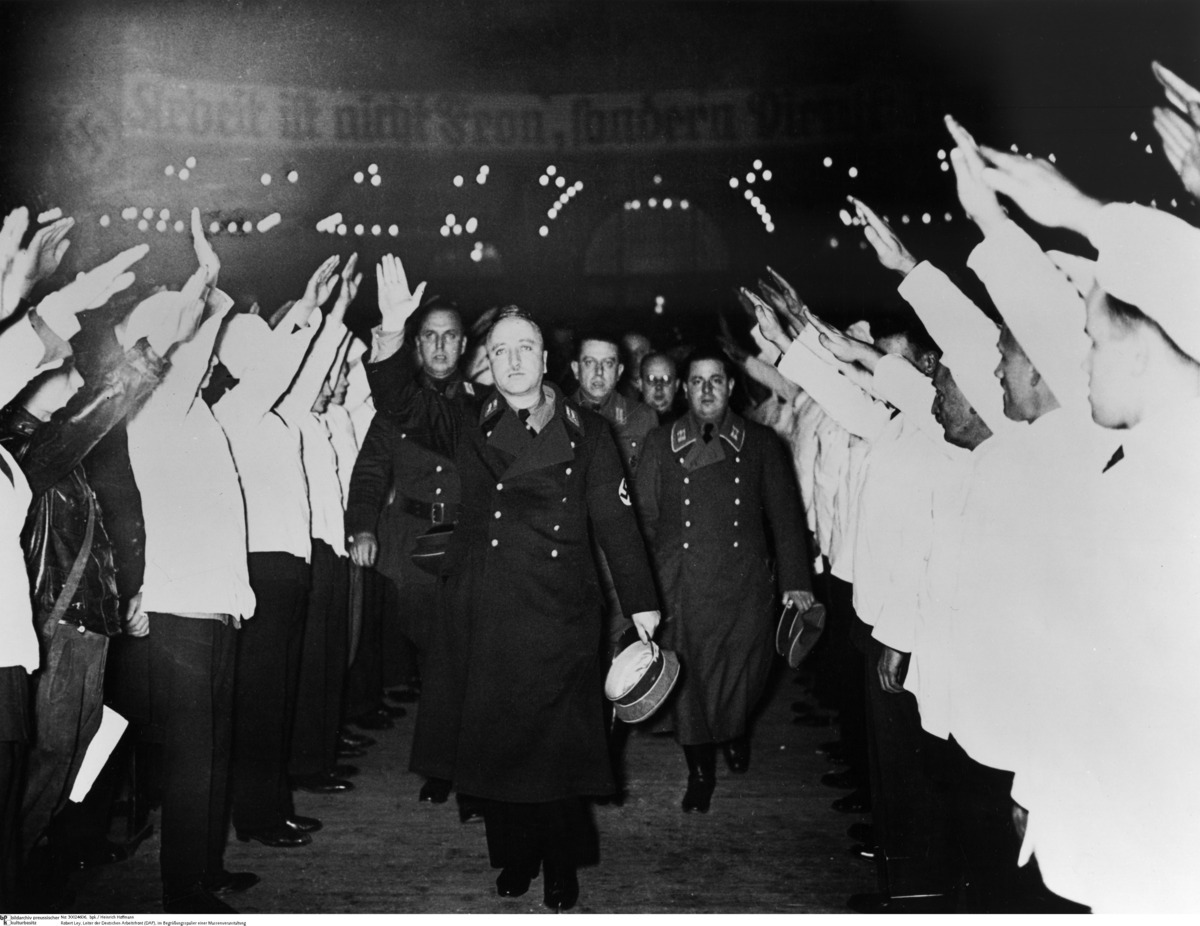Abstract
Robert Ley joined the Nazi Party in the 1920s and held a series of
party offices, including the position staff chief of NSDAP political
organizations. From 1930 on, he was also a member of the Reichstag.
After Hitler seized power, Ley led the “Action Committee for the
Protection of German Labor,” whose goal was to “coordinate” all German
labor unions under Nazi control. On May 10, 1933, he organized the
takeover of German unions by the German Labor Front
[Deutsche Arbeitsfront or DAF], a
unified association of employees and employers. By the end of the war,
the DAF and its numerous collateral organizations boasted more than 22
million members. As the leader of the DAF, Ley headed the regime’s
largest mass organization – a responsibility that he managed despite his
escalating alcoholism, which earned him the nickname the “Reich
drunkard” [Reichstrunkenbold]. In
1945, he was named a defendant in the war crimes trial organized by the
International Military Court in Nuremberg. He hanged himself in his cell
before the trial started.
